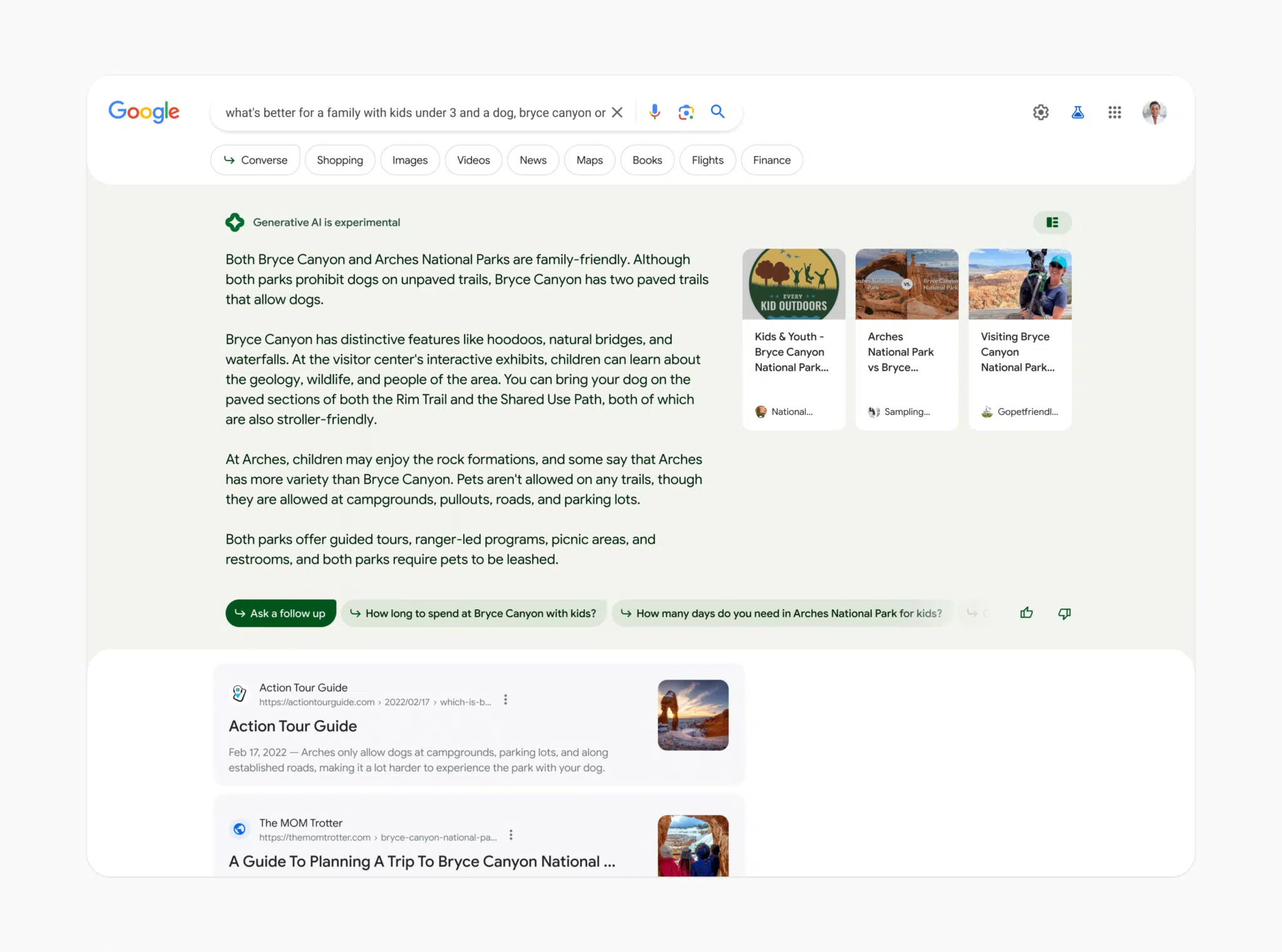In May, Google announced they’ll be giving the world’s favourite search engine an AI-based facelift. Moving away from the classic search style, focusing on keywords, Google aims to bring a more conversational approach to its search engine.
 TL;DR?
TL;DR?
- Google is moving to AI-generative search
- This means searches will be more conversational
- For SMBs, content should still foster keywords, but pre-empt the questions users may have
- User experience will have greater importance in ranking, so Core Web Vitals should be monitored
What is generative AI search?
Generative AI is artificial intelligence that can produce content. The most obvious example of this technology is ChatGPT, but you may have seen generative AI in the form of images, music, and even text – but the latter isn’t as positive as it sounds.
Generative AI search, however, is a search engine that produces a conversation-like answer to specific questions which is, you guessed it, generated by AI.
Why is Google moving towards AI-generative searches?
It’s widely known that, for all its positives and justifiable concerns, is the future. With this in mind, it’s no wonder that Google is pivoting their search engine to become AI-generative. But as they put it, it’s all about “doing the heavy lifting” for the user. Rather than googling “best ebike” or “best commuting bike”, the user may now search “what’s better for city commuting, ebike or Brompton?” The idea behind generative AI search is that all the information required can be pooled together in one, conversational response.

How will this search engine user experience?
So the good news is that Google will still give users a ream of links they can follow off the back of their query. However, in some situations, like ChatGPT, the search engine will share a conversational style of synthesised text. The text, pitched as ‘human-like’, will answer the user’s query and offer links leading to the most relevant search results, and will also invite them to ask follow-up questions.
Will this impact SMBs?
It’s reported that there is no major shake up in terms in SEO ranking practices. Luckily for SMBs, that means no major re-writing of their site. However, Google will be reducing clicks on organic results. Therefore, SMBs need to increase their online presence (i.e. be across several platforms) to make sure their ranking reaches or remains on page 1 of Google.
Though, if you’re clients are not already monitoring your Core Web Vitals scores , they should start now. The new generative AI search system will favour sites offering a high-scoring user experience that primarily offers easy navigation and logical content progression. This is key, as the most sensible follow-up on Google’s human-like response might be to go to an SMBs’ site.
Happy searching!
 The Insites Team
The Insites Team
Get AI ready with a site audit
AI is quickly becoming a part of our every day lives. Though SMBs may feel it is more relevant to bigger organisations, it’s important that they’re a step ahead of the curve. An audit of their online presence, which includes SEO ranking and Core Web Vitals performance scores, could offer essential insights as to where their site needs improvement.
Check out Insites , the online presence auditing tool that gives your customers an insight into their site in 60 seconds.















